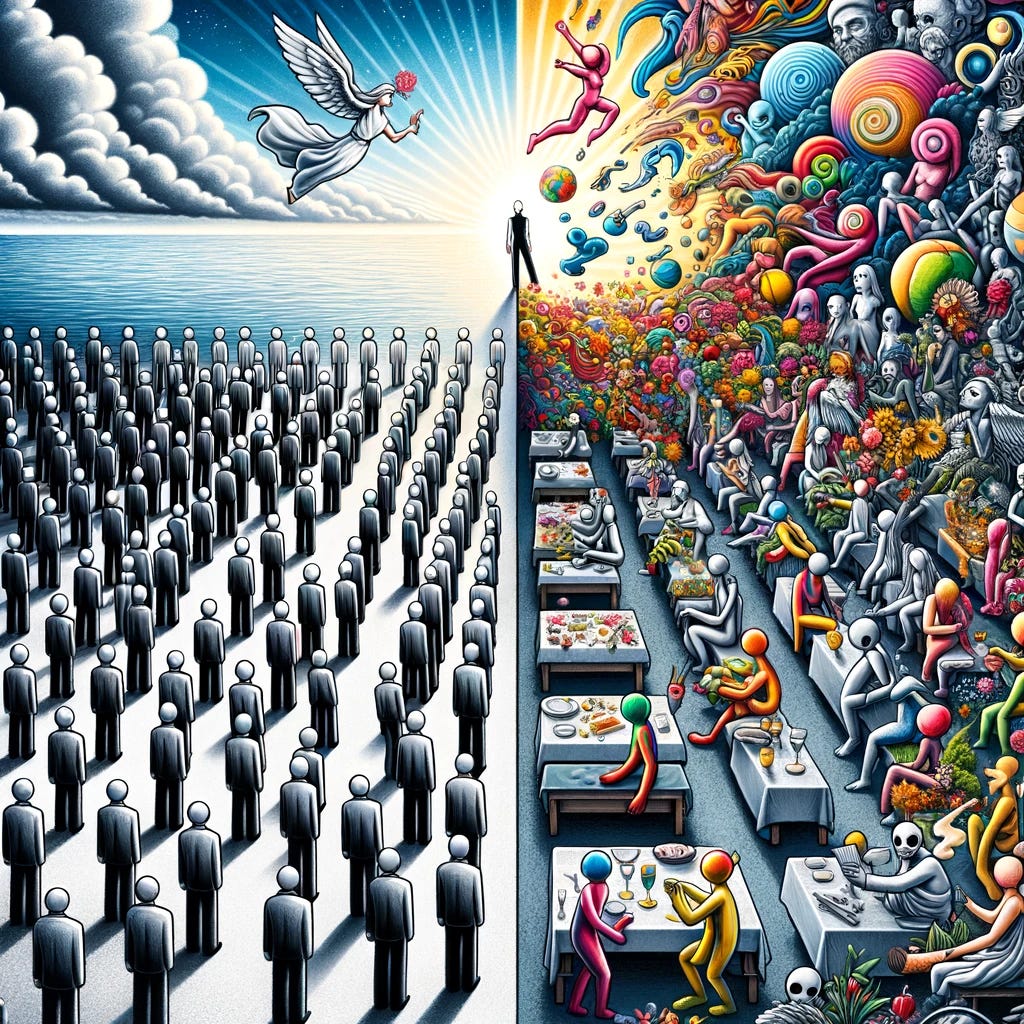Unravelling the Paradox: A Comprehensive Exploration Of The Quote "In Heaven, All The Interesting People Are Missing"
Unravelling the Paradox: A Comprehensive Exploration Of The Quote "In Heaven, All The Interesting People Are Missing"
Introduction
The quote "In heaven, all the interesting people are missing" presents a provocative and paradoxical viewpoint that has intrigued and baffled many. This statement, often attributed to Friedrich Nietzsche, a German philosopher known for his unconventional ideas, challenges traditional notions of morality, virtue, and the afterlife. In this article, we will explore the meaning behind this enigmatic quote, its implications in real life, and the significance it holds for individuals seeking deeper understanding and personal growth.
Meaning and Interpretation
At first glance, the quote seems to suggest a preference for flawed or unconventional individuals over those deemed 'perfect' or morally upright according to societal standards. Nietzsche, known for his criticism of traditional moral values, often emphasised the importance of individuality, authenticity, and the complexities of human nature. In this context, the quote can be seen as a celebration of human diversity, imperfection, and the colorful tapestry of human experiences.
This statement challenges the conventional image of heaven as a place of absolute goodness and purity, suggesting instead that it might lack the variety and richness that flawed individuals bring to the human experience. It implies that the quirks, mistakes, and even the rebellious traits of people make them interesting and that a paradise without such individuals might be monotonous.
Application in Real Life
The application of this quote in real life extends beyond theological or philosophical discussions about the afterlife. It encourages individuals to embrace their imperfections and to value the unique traits and experiences that make them interesting. Here’s how:
Celebrating Individuality: This perspective fosters a more inclusive and accepting view of others, recognising that everyone has something unique to contribute, regardless of their flaws.
Reevaluating Success and Virtue: The quote invites a reevaluation of what it means to live a good life, suggesting that personal growth and authenticity are more valuable than rigid adherence to societal standards.
Encouraging Creativity and Innovation: By valuing the 'interesting' over the conventionally 'good,' this viewpoint encourages creativity, exploration, and innovation, both in art and in life.
Benefits to the User
Embracing the ethos of this quote can have several benefits:
Increased Self-Acceptance: It can lead to greater self-acceptance and self-compassion, as individuals recognise that their flaws and idiosyncrasies are part of what makes them interesting and valuable.
Richer Interpersonal Relationships: This mindset can enhance interpersonal relationships by fostering an appreciation for the depth and complexity of others.
Greater Psychological Well-being: By moving away from unrealistic standards of perfection, individuals can experience reduced anxiety, increased happiness, and greater overall well-being.
Origin and Historical Context
While the quote is often attributed to Nietzsche, its exact origins are difficult to pinpoint. It reflects themes common in Nietzsche’s work, such as the critique of traditional morality, the value of individualism, and the complexity of human nature. Regardless of its precise origins, the quote encapsulates a perspective that has resonated with many who question conventional norms and values.
Conclusion
"In heaven, all the interesting people are missing" is more than just a whimsical or provocative statement; it is a reflection on the nature of virtue, the value of human imperfection, and the richness of the human condition. By considering the implications of this quote, individuals can explore new dimensions of personal growth, self-acceptance, and the beauty of human diversity. Whether one agrees with the sentiment or not, it serves as a powerful prompt for reflection on what truly makes life interesting and meaningful.



